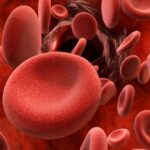Device and drug shortages in Europe persist, new survey shows
Countries across the globe face a wide range of challenges in accessing necessary health products, such as shortages and stockouts.1 According to the World Health Organisation, a shortage occurs when demand exceeds supply at any point in the supply chain.2
This can result in a stockout, or “the complete absence of a medicine, health product or vaccine at the point of service delivery to the patient.”2 A 2023 survey from the European Association of Hospital Pharmacists (EAHP) dives deeper into the problem of device and drug shortages at a regional level. Discover the key insights below:
Are drug shortages on the rise in Europe?
The EAHP surveyed 1,497 hospital pharmacists as well as other healthcare professionals, patients and their caregivers from 36 different countries to further understand device and drug shortages in European hospitals. The survey found 95% of pharmacists still experiencing drug shortages in 2023.3
86% reported experiencing drug shortages in 2014, which rose to 90% in 2018, 95% in 2019 and has since plateaued.3 In 2022, over half of pharmacists experienced drug shortages more than 10 times with medicines having only one manufacturer.3
The pharmacists listed antimicrobials, painkillers and anaesthetics as the medicines most frequently in shortage.3 Survey respondents believed that manufacturing problems, global shortages in active pharmaceutical ingredients and supply chain challenges were the main causes of drug shortages.3
More on this topic: Antibiotics shortages in Europe: what you need to know
Forecasting medical device shortage
61% of hospital pharmacists reported medical device shortages as a problem in their hospital, identifying supply chain problems and discontinuations in device components as the driving factors.3 We know that due to capacity issues, conformity assessment bodies are struggling to certify/recertify old and new medical devices under the European Medical Device Regulation (EU-MDR) 2017/745.3
This could mean that medical devices are at risk of discontinuation if they aren’t certified before the end of the transition period, ending 31 December 2027 for higher-risk devices and 31 December 2028 for medium and lower-risk devices.3 As well, 71% of pharmacists noted that manufacturers rarely communicate device shortages, with 2% never receiving any notification at all.3
More on this topic: Key insights on recent amendments to EU-MDR
How are device and drug shortages impacting patient care?
55% of patients surveyed experienced a medication shortage and 45% experienced a device shortage during their treatment, with 37% of drug shortages reportedly having an impact on care.3 Most survey respondents graded the severity of device and medication shortages as moderate or severe in their hospital, though many graded it as mild.3
According to the survey results, the most commonly reported impacts on patient care due to drug shortages were delays, suboptimal treatment and even complete cancellation in care.3 Healthcare professionals also listed increased length of stay and adverse safety events such as medication error, treatment failure and even death.3
When a drug shortage occurs, 58% of pharmacists, 59% of physicians and 50% of nurses do not have a contingency plan on therapeutic substitutions.3 However, the majority of healthcare professionals involved in the survey had to implement clinical changes to manage these shortages, such as switching to an alternative medicine that might not be as effective, converting from the intravenous to the oral form of a medicine and changing administration protocols.3
References
- World Health Organisation. Access to medicines and health products. Accessed 17 January 2024 at: https://www.who.int/our-work/access-to-medicines-and-health-products.
- World Health Organisation. Meeting Report: Technical Definitions of Shortages and Stockouts of Medicines and Vaccines. Published 5 October 2016. Accessed 17 January 2024 at: https://cdn.who.int/media/docs/default-source/medicines/meeting_report_october_shortages.pdf?sfvrsn=1a902eab_3&download=true.
- European Association of Hospital Pharmacists. EAHP 2023 Shortage Survey Report: Shortages of medicines and devices in the hospital sector – prevalence, nature and impact on patient care. Accessed 17 January 2024 at: https://www.eahp.eu/sites/default/files/shortages_survey_report_final.pdf.
This list of references to third-party peer-reviewed material and the sites they are hosted on are provided for your reference and convenience only, and do not imply any review or endorsement of the material or any association with their operators. The Third-Party References (and the Web sites to which they link) may contain information that is inaccurate, incomplete, or outdated. Your access and use of the Third Party Sites (and any Web sites to which they link) is solely at your own risk.
BD-113839




